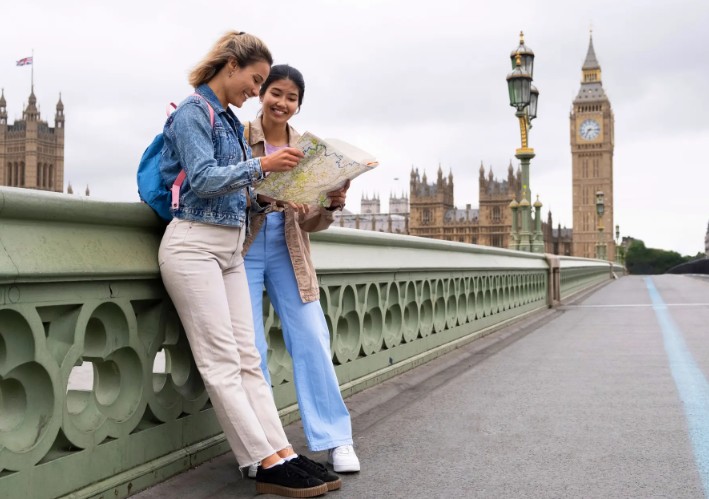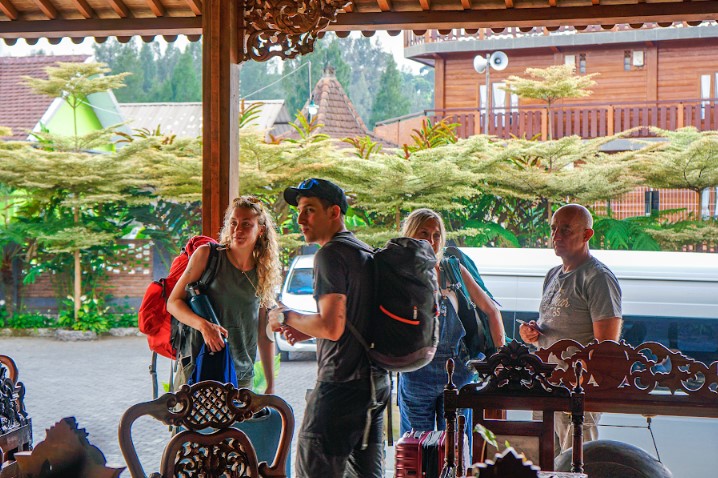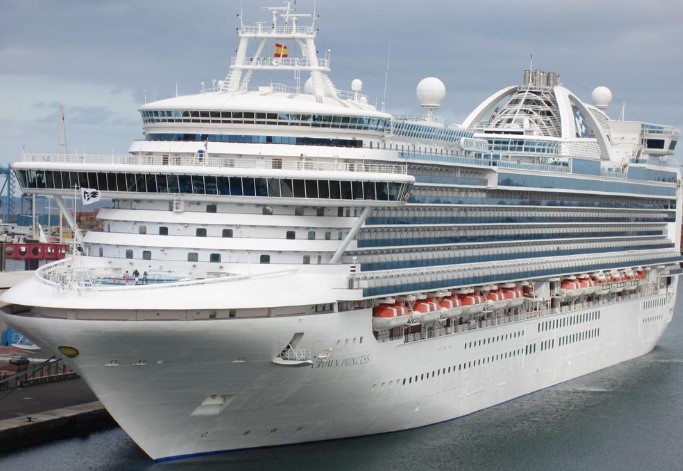Released: December 15, 2021
Note
The Public Health Agency of Canada is advising travellers, regardless of their vaccination status, to avoid non-essential travel internationally.
On November 26th, 2021, a new variant of the SARS-CoV-2 virus that causes COVID-19, Omicron, was designated a variant of concern (VOC) by the World Health Organization. The Omicron variant is present in all continents, with community transmission of this VOC reported in some countries. This variant has a large number of concerning mutations, with preliminary evidence suggesting a growth advantage over the Delta VOC and a potential decrease in vaccine protection against infection. The Government of Canada is closely monitoring the situation and working with its international partners including the World Health Organization to better understand this variant and its impacts.
Many foreign governments are implementing strict travel restrictions due to spread of the Omicron variant and international transportation options may be limited. As a result, you may have difficulty returning to Canada, or may have to remain abroad for an indeterminate period.
Local authorities abroad may impose control measures suddenly, including movement restrictions such as lockdowns. In some countries, you may have limited access to timely and appropriate health care should you become ill.
If you must travel
Monitor and review Canada’s entry requirements before and during your travel as arrival to Canada following international travel could be severely restricted due to the spread of the Omicron variant.
All eligible travellers should complete a COVID-19 vaccine series along with any additional recommended doses in Canada at least 14 days before travelling.
• Evidence shows that vaccines are very effective at preventing severe illness, hospitalization and death from COVID-19. While vaccination provides better protection against serious illness, you may still be at risk of infection from the virus that causes COVID-19.
• Anyone who has not completed a vaccine series is at increased risk of being infected with and spreading the virus that causes COVID-19 when travelling internationally and is at greater risk for severe disease.
Consult a health care professional or visit a travel health clinic preferably at least 6 weeks before you travel.
Pay close attention to the COVID-19 situation at your destination before travelling, including at the local level. The COVID-19 situation can change rapidly and can vary a lot from one country to another, even within regions of a country.
This advice provided by the Government of Canada will continue to be re-evaluated based on the evolving situation in Canada and in other countries.
The content on this page is provided as advice. The decision to travel is your choice and you are responsible for your safety abroad and travel arrangements to return home.
Before you travel
Do not travel if you:
• have symptoms of COVID-19, even if mild
• are in quarantine or isolation
• have been diagnosed with COVID-19
• are waiting for the results of a lab test for COVID-19
• have been in close contact with someone who has or is suspected to have COVID-19
If you are well and must travel:
• check for COVID-19 testing, vaccination requirements, as well as other entry requirements for your destination. Information on these requirements can be found on the Entry/exit requirements tab of your destination’s Travel Advice and Advisories page
Travel Advice and Advisories
• ensure you will be able to obtain a COVID-19 molecular test in order to meet Canada’s testing requirements to return to Canada
• frequently monitor and review Canada’s travel requirements and exemptions for your return
• find the contact information for the Canadian embassy or consulate closest to your destination and keep the information with you, in case:
o there is an unforeseen lockdown, or
o local health services become overwhelmed
• consider the availability and potentially high cost of adequate medical services in your destination, should you become ill
• check with your travel insurance provider and make sure you’re covered for:
o COVID-19-related medical expenses
o other non-COVID-19 emergency-related expenses
o trip interruption
• make sure you meet the requirements to board a flight in Canada, if flying
• plan for delays to your return home, including the financial implications and the practical arrangements (e.g. flight re-booking, extended accommodations at the destination etc.) you may need to make
During your travel
• Stay informed of the local COVID-19 situation, be prepared and follow local public health advice and regulations.
• Isolate for 10 days if you’re experiencing COVID-19 symptoms, even if mild.
• If you think you have COVID-19, follow local public health advice regarding seeking care.
• Know where to access medical care, including a COVID-19 test.
Consistently use multiple personal preventive practices at the same time, regardless of your vaccination status. This is called a layered approach and it helps protect yourself and others.
• Properly wear a well-constructed and well-fitting mask when recommended, such as when:
o you’re in a shared space (indoors or outdoors) with people from outside your immediate household or close travel group;
o you’re advised by the local public health authority.
• Maximize your distance from people outside of your immediate household or close travel group. Follow local public health recommendations such as gathering size limits.
• Avoid common greetings, such as handshakes.
• Limit contact with people at higher risk of more severe disease or outcomes from COVID-19, like older adults and those with underlying medical conditions or compromised immune systems. This helps protect yourself and others.
• Wash your hands often with soap under warm running water for at least 20 seconds.
o Use alcohol-based hand sanitizer (containing at least 60{32bc5e747b31d501df756e0d52c4fc33c2ecc33869222042bcd2be76582ed298} alcohol) if soap and water are not available. It’s a good idea to always keep some with you when you travel.
• Perform respiratory etiquette by covering your mouth and nose with your arm to reduce the spread of germs.
o If you use a tissue, dispose of it as soon as possible and wash your hands afterwards.
• Avoid touching your eyes, nose or mouth with unwashed hands.
• Clean and disinfect surfaces and objects that you frequently touch.
The types of activities and actions you take while travelling will influence the likelihood of your exposure to the virus that causes COVID-19.
• Avoid high-risk activities, such as visiting crowded indoor or outdoor settings. Examples include:
– large live performances
– busy bars or sports events
– travel in a crowded and closed-in and/or poorly ventilated forms of transportation (e.g., a local bus/minibus)
o Consider selecting activities and forms of transportation where proof of vaccination is required
• Avoid closed spaces (with poor ventilation) and crowded places when with people from outside of your immediate household or travel group. When possible improve indoor air quality in shared spaces by opening windows and doors when it is safe to do so and as weather permits.
Returning to Canada
Do not travel if you:
• become sick with symptoms consistent with COVID-19, even if mild, before your planned return to Canada
• are in quarantine or isolation
• have been diagnosed with COVID-19 in the last 14 days
• are waiting for the results of a lab test for COVID-19
• have been in close contact with someone who has or is suspected to have COVID-19
Ensure you’ve obtained a negative COVID-19 molecular test before returning to Canada.
Canadian entry requirements may change during your travel. Regularly review the entry requirements and exemptions for your situation.
Travel requirements and exemptions
Air travellers are required to undergo a health check before boarding. If the air operator sees that the traveller has COVID-19 symptoms, they will be required to refuse boarding them for 14 days or until a medical certificate is presented that confirms that their symptoms are not related to COVID-19.
Measures that require all air passengers to wear a well-constructed, well-fitting and properly worn mask to cover their mouth, nose, and chin during travel are in effect.
To learn more about boarding requirements:
Boarding flights and trains in Canada
If you feel sick or experience any symptoms of COVID-19 during your flight to Canada or upon arrival, you must inform the flight attendant or a Government of Canada screening or quarantine officer immediately.
If you don’t have symptoms but believe you were exposed to someone with COVID-19, report this information to a screening or quarantine officer on arrival in Canada. This is required under the Quarantine Act. The screening or quarantine officer will provide instructions for you to follow.
Registration of Canadians Abroad
Sign up with the Registration of Canadians Abroad service to stay connected with the Government of Canada in case of an emergency abroad or an emergency at home.
Registration of Canadians Abroad
If you need assistance with a special circumstance
Contact the Public Health Agency of Canada
COVID-19 information line: 1-833-784-4397
Report a problem on this page
- Date modified:





More Stories
Canadian government issues Travel Advisory for thriteen Mexican states
Canada Issued Travel Advisories For These 7 Tourist Hot Spots & It Could Affect Your Trip
Mexico-bound snowbirds face stern travel warning from government